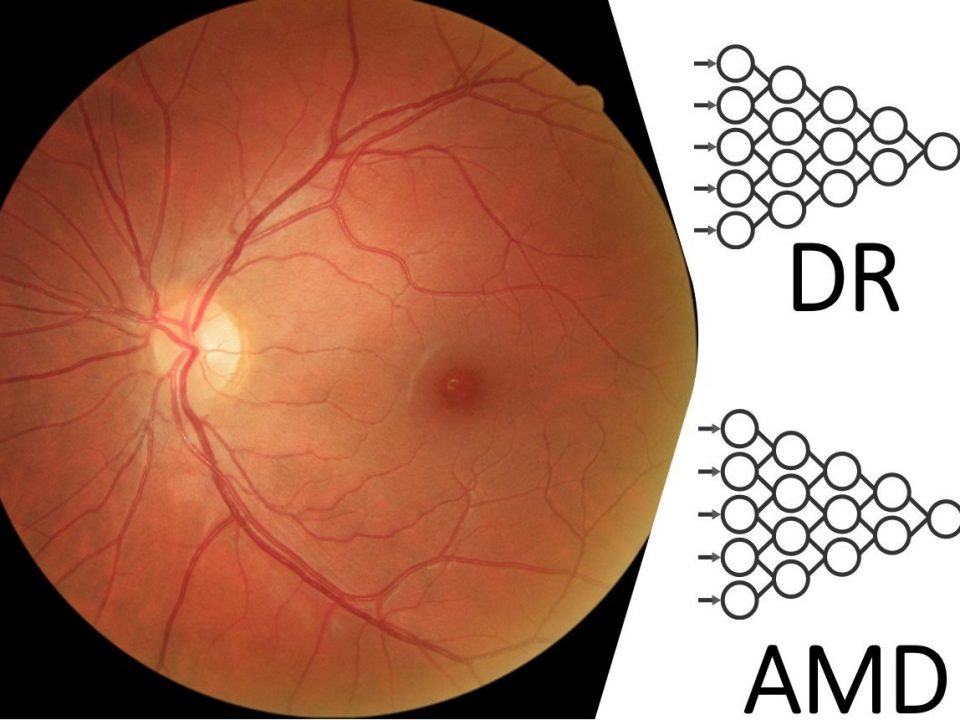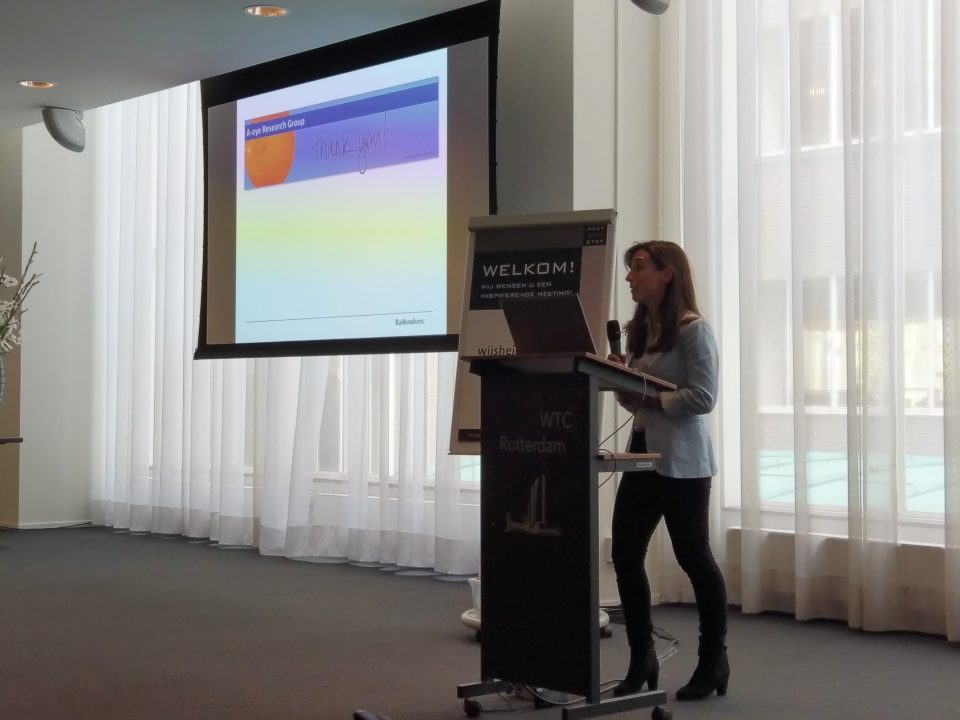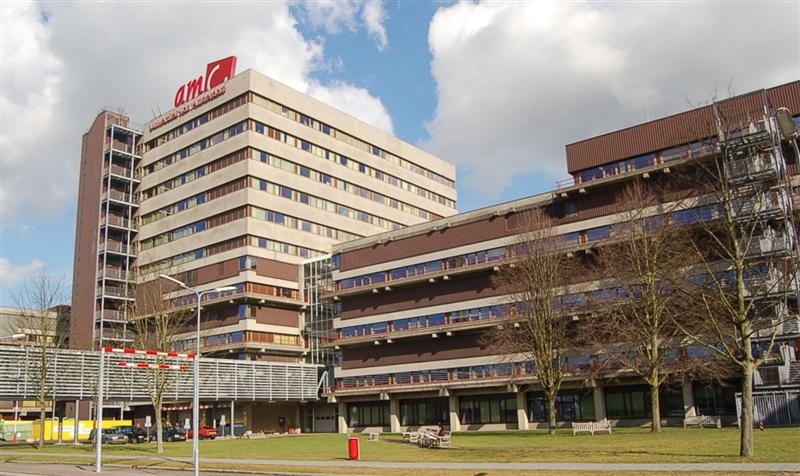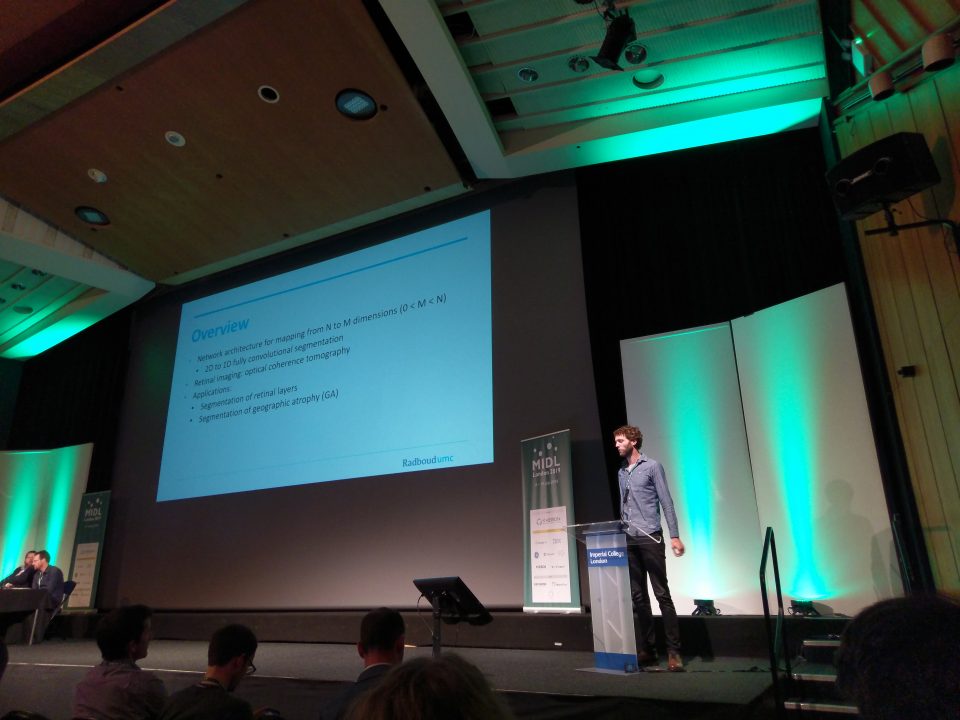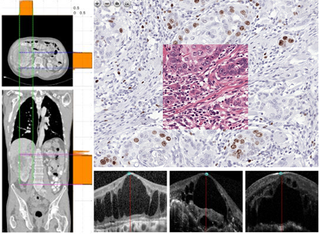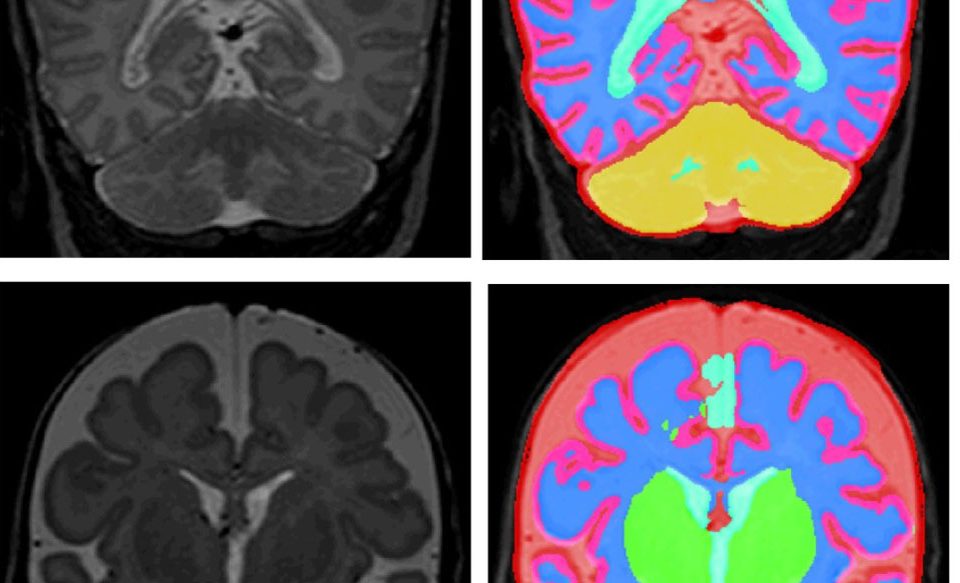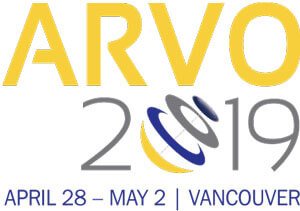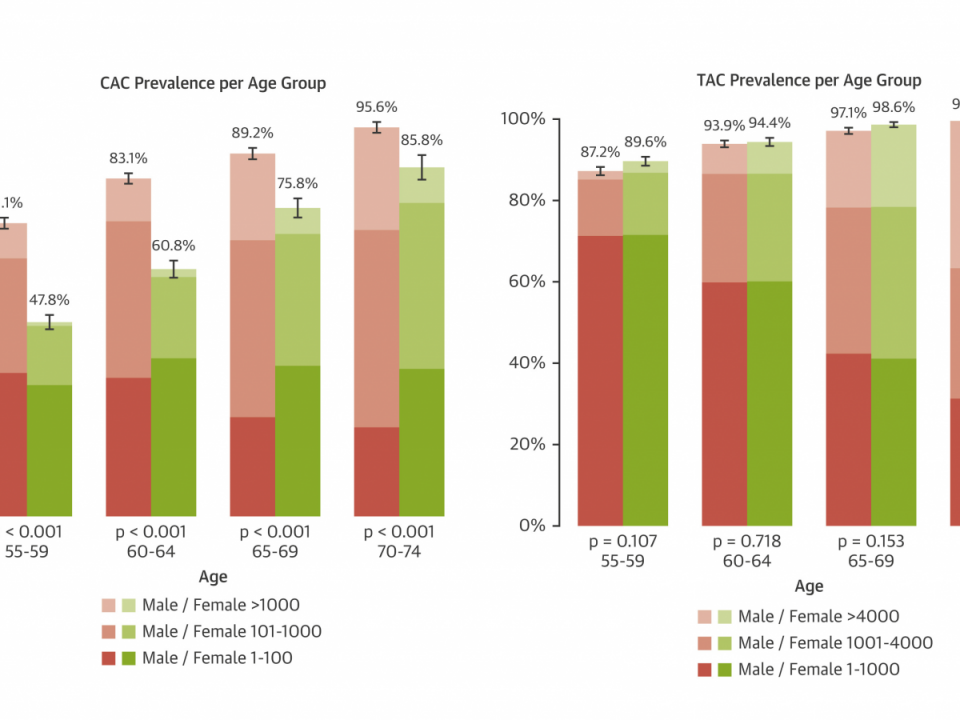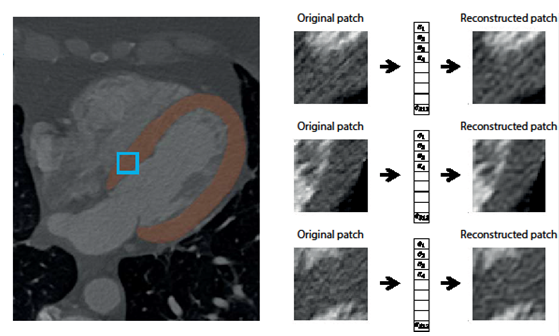November 26, 2019
Our paper ‘Evaluation of a deep learning system for the joint automated detection of diabetic retinopathy and age‐related macular degeneration’, by González-Gonzalo et al, has been […]
October 4, 2019
Clarisa Sánchez presented at the Ophthalmic Imaging Symposium organized by Combined Ophthalmic Research Rotterdam (CORR) on 4th October 2019. She presented an overview of Artificial Intelligence […]
September 1, 2019
Following the appointment of Ivana Išgum as University professor at the University of Amsterdam, the QIA group has moved to the Amsterdam UMC. We are very […]
July 10, 2019
Bart Liefers presented his work at the international conference on Medical Imaging with Deep Learning (MIDL) 2019 in London, during the “Structured output” oral session. His […]
May 29, 2019
Last week, the final meeting of the Automation in Medical Imaging (AMI)-project took place at the Radiology department of Radboud University Medical Center. The AMI-project was a close […]
May 9, 2019
Nadieh receives a Magna cum laude award at the Annual Meeting of the International Society for Magnetic Resonance in Medicine 2019 for her work on Brain tissue […]
May 2, 2019
Bart Liefers, Cristina González-Gonzalo and Harm van Zeeland presented their work during the corresponding Poster Sessions at the Association for Research in Vision and Ophthalmology (ARVO) […]
January 20, 2019
JACC: Cardiovascular Imaging published a nice editorial and tctMD an article on our recent paper on sex differences in arterial calcification in heavy smokers.
November 26, 2018
AuntMinnie reports about Robbert van Hamersvelt’s work on how deep learning can help diagnosing significant coronary artery disease.

